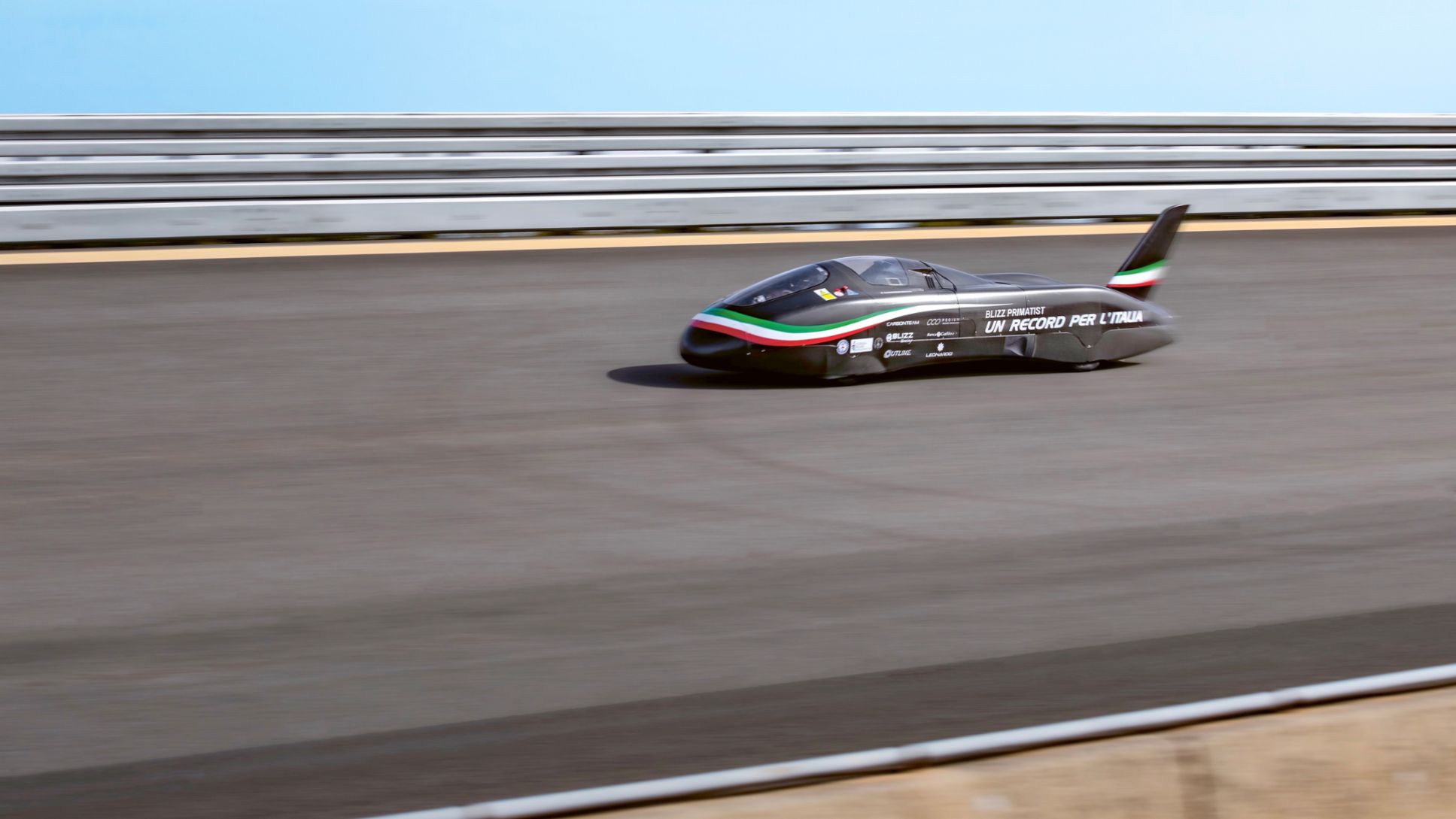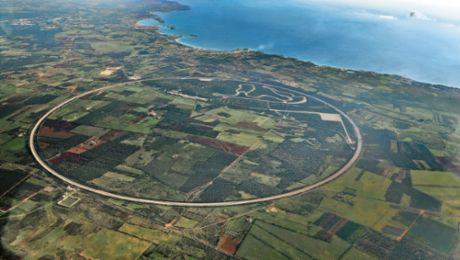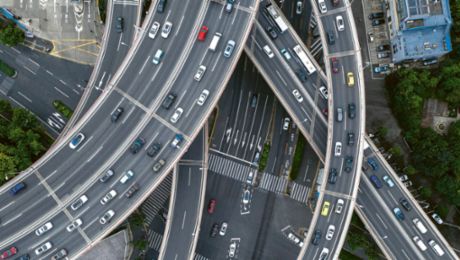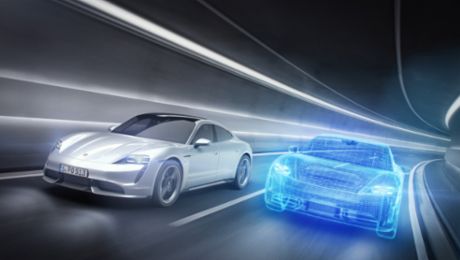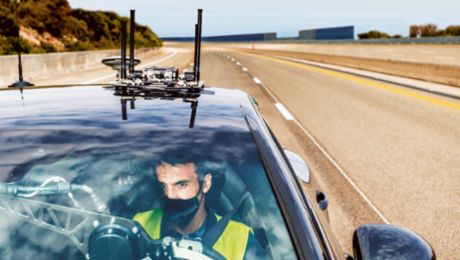Gianmaria Aghem has driven more than 400 vintage car rallies in his life – and he’s won a fair share of them, too. His car: a 1965 Lancia Fulvia Coupé. “I love the classic design, the vintage technology, and the sound of the engine,” says the 74-year-old entrepreneur from Turin with evident delight. His living room is adorned with more than 70 trophies.
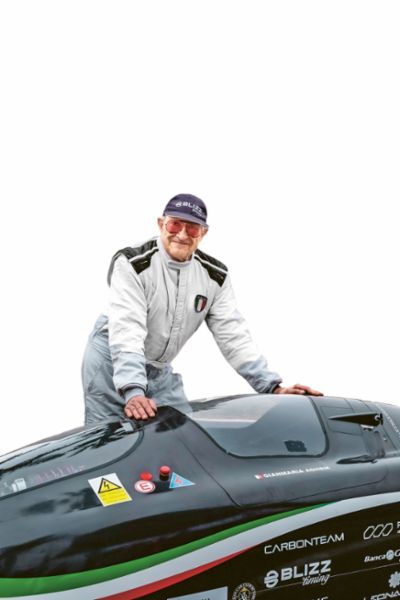
Now another standout achievement – and one that perhaps wouldn’t be expected of a classic car fan like Aghem – has been added to his bevy of awards: last spring he set seven world records on the grounds of the Nardò Technical Center (NTC) in southern Italy. He was driving the ultra-modern electric single-seater Blizz Primatist, a car that he played a key role in developing and which has little in common with his Lancia Fulvia Coupé. There is no flashing chrome radiator grille, rally headlights, or the classic curved shapes of the Lancia. Indeed, with its tailfin and measuring four metres long and one metre wide, it’s more reminiscent of a torpedo. When it accelerates there is no rich throatiness of a four-cylinder – only the quiet hum of its electric motor.
Impressed by the Z.E.R
The ‘Blizz’ in the Blizz Primatist name references Aghem’s company, Blizz Timing, which he founded a few years ago and which manufactures high-quality chronometers for rallying. The ‘Primatist’, meanwhile, underscores the aspiration to always be the first to cross the finish line. The car was modelled on the legendary Z.E.R. (Zero Emission Record) launched by the Italian design firm Bertone in 1994. With its sensational Cd value of 0.11, that electric vehicle was a futuristic reinterpretation of the Abarth 750 Record, a 1950s racing car also built by Bertone.
Like its forebear, the Z.E.R. was designed exclusively to deliver top performance. And it certainly did: the electrically powered car set two world records. One came in 1994, when it covered a distance of 199.881 kilometres in one hour. The following year, it set a new top-speed record for electrically powered vehicles: 303.977 km/h.
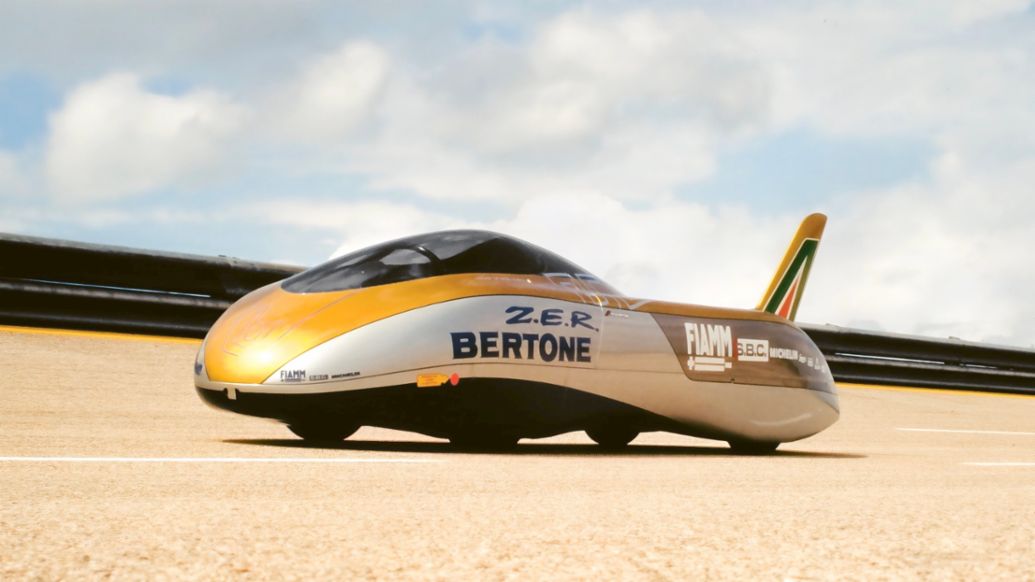
Aghem saw the Z.E.R. for the first time in 1996 at the AutoClassica fair in Milan. He was immediately impressed by the concept. For him, the Z.E.R. was more than just a Bertone classic: the car’s new drive technology represented a foray into uncharted territory. And that is exactly what the Turin car fan wanted to do roughly a quarter of a century later: he wanted to drive the Z.E.R., improve it, and set new records with it. Unfortunately, the car was not available. After Bertone’s bankruptcy, the Italian classic car club ASI (Automotoclub Storico Italiano) bought the entire collection of the Bertone Museum. Now the vehicles – including the Z.E.R. – are on exhibit at Volandia, a museum near Milan Malpensa Airport.
In-depth expertise in automotive engineering
Instead, Aghem decided to design his own vehicle. Having acquired in-depth expertise in automotive engineering over the years, he had the requisite knowledge. “When engineers get stuck, they call here and ask him,” says his wife, Rossella Conti. Aghem also brought in engineer Eugenio Pagliano, who had developed the Z.E.R. and was now to join him in launching its unofficial successor. But the Blizz Primatist was never intended to simply be an improved copy of the Z.E.R. “We developed all the components from scratch,” Aghem stresses.
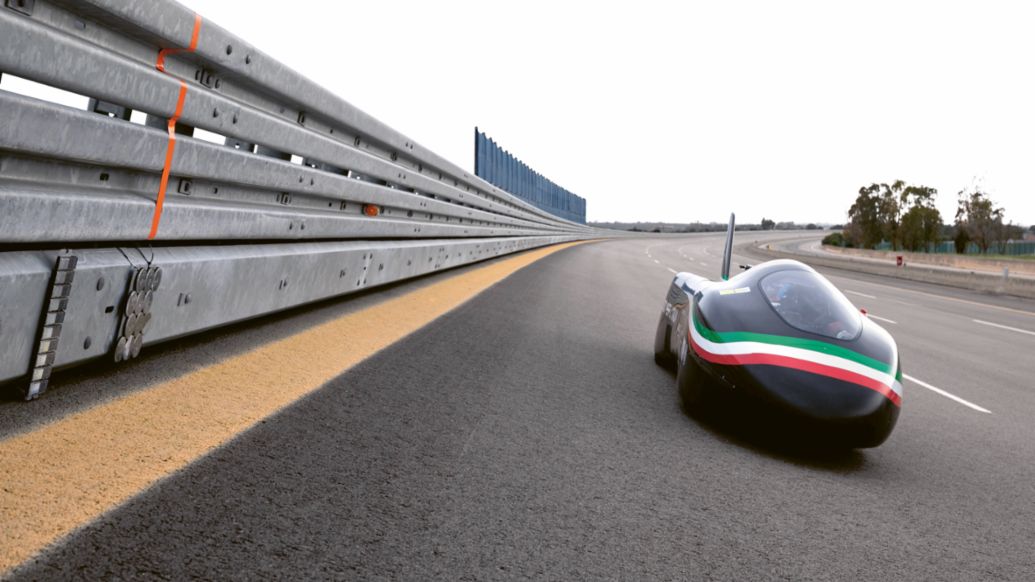
The capabilities of the electric motor and the efficiency of the battery cells are state of the art. The battery in the Blizz Primatist consists of 2,688 lithium-ion cells that deliver a total of 34 kWh of energy. Electric propulsion is provided by a 20-kilogram, three-phase asynchronous motor from Switzerland, which can deliver a peak output of more than 147 kW and enable a top speed of more than 300 km/h. Energy management is handled by a complex algorithm that determines the maximum speed at a given distance or time. All information coalesces in the cockpit, with its digital readouts and black-and-gray LCD displays, which is almost as spartan as a Formula One cockpit. The electric car is steered with a yoke similar to those used in airplanes.
Design optimisation in the wind tunnel
However, Aghem’s engineers were determined to adopt one thing from the Z.E.R.: the low Cx value of 0.11. To achieve this, the designers and constructors from Podium Engineering in Valle d’Aosta optimised the drag of the Blizz Primatist on the computer and measured it in the wind tunnel at the Polytechnic University of Turin. The car’s long range is due in no small part to the modern lightweight carbon-fibre construction contributed by the Carbonteam company based in Saluzzo in Piedmont. In the end, the engineers stayed below the specified limit of 500 kg with an extremely low vehicle weight of 499 kg. The idea was to make it possible to compete in two different classes: electric vehicles weighing up to 500 kg and – with a few kg of ballast – electric vehicles weighing 500 to 1,000 kg. The 890 kg Z.E.R., outfitted with lead batteries, also competed in that class.

The Z.E.R. set its two world records on the circular track at the NTC in Apulia. So it was only logical for its successor to test its mettle on the same track. Antonio Gratis, managing director of the NTC, still remembers the call from Aghem clearly: “When I was asked if I could imagine opening the track for the record attempts, I didn't have to think twice. Testing the limits of the automotive future is part of our DNA – whether it’s through safeguarding the vehicles of tomorrow or through unique record-breaking attempts. Automotive history has been written on our track. What would the Nardò Technical Center be without records?”
New track record over one hour
After the track had been inspected and certified by the FIA (Fédération Internationale de l'Automobile), the big day arrived on 30 April, 2021. A tow truck moved the Blizz Primatist to the starting position on the 12.6 km high-speed circular track at the NTC. The countdown ticked down on a display panel, and when it reached zero the black torpedo featuring the Italian tricolor started moving almost silently. The Blizz Primatist had embarked on its quest to break the record. At the wheel was Gianmaria Aghem.
On that day and the following, he roared around the track at constant speeds of between 200 and 250 km/h, setting seven records in two vehicle classes. On 30 April, he covered the 10-mile, 100-km and 100-mile distances at the highest average speed that electric vehicles weighing up to 500 kg had ever achieved to date. Aghem also bettered the course record for the hour, covering 225.184 km. At the end of the day, the battery still had a charge of four per cent. Thanks to intelligent energy management, Aghem had made optimal use of the available energy.
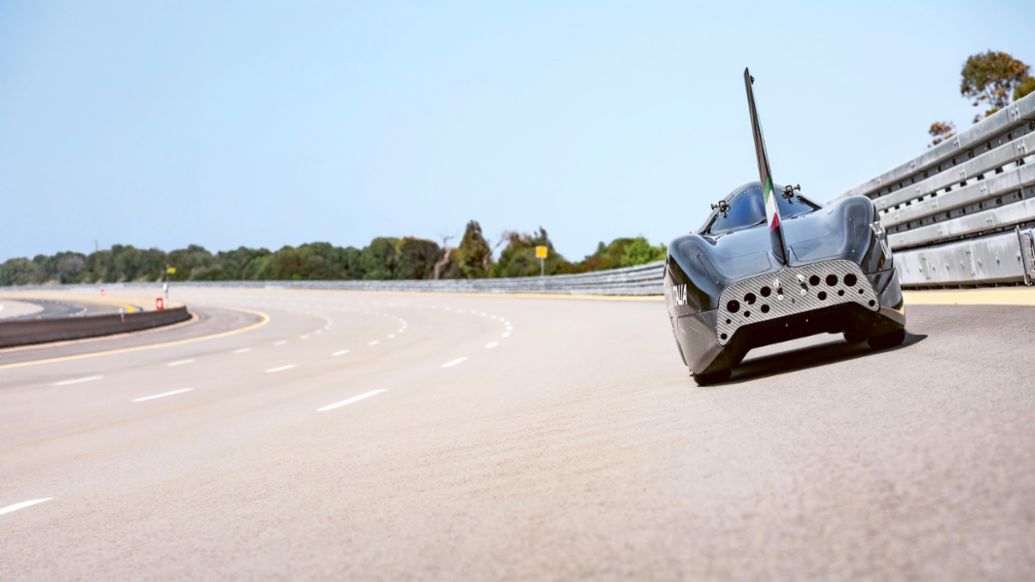
Overnight, the battery was charged again, and on 1 May, three further records followed in the 10-mile, 100-km and 100-mile time trials in the 500 to 1,000 kg electric vehicle class. The times were certified by the FIA, whose experts travelled to the event together with representatives of the Italian automobile club ACI (Automobile Club d’Italia).
If he had taken more time and recharged the battery, Aghem could have achieved even higher speeds. “That wasn’t my objective, though,” he says. “I wanted to show that a battery-powered car can travel long distances at a high speed. I have achieved that.” Now he hopes that his vehicle will serve as an example to automotive manufacturers and will spur them on. “This achievement was unimaginable just a few years ago,” Aghem says. And he plans to break more records.
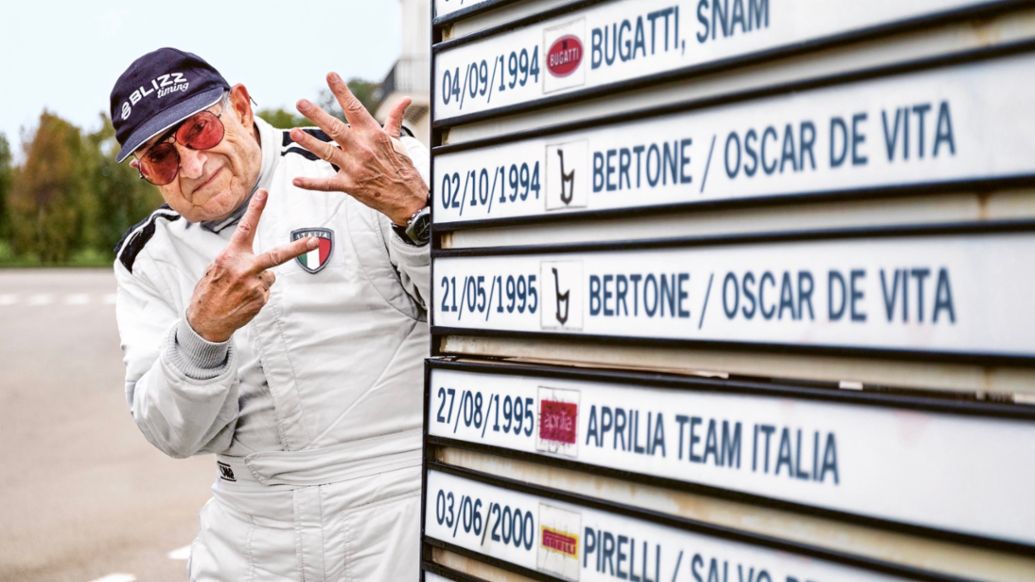
Gratis is equally impressed: “Gianmaria Aghem’s records are proof of the great progress made in electric powertrain systems. Compared to the Z.E.R., the Blizz Primatist has a much higher range and therefore represents a huge technological leap. I’m quite certain that the public will soon see more fascinating records in the electric vehicle class. And I am sure that NTC will play a major role as a ground of great achievements.”
Aghem passed on the chance to set an eighth record: the one-hour time trial for electric vehicles weighing up to 1,000 kg. That record is still held by the Z.E.R., at 199.881 km. “I could have topped that if I had driven slower in the other three categories on the second day,” Aghem said. “But I chose not to break that Z.E.R. record. That’s what my respect for the legend demanded.” His wife chimes in: “Do you hear that? My husband is not a cold-blooded record-hunter. He’s a gentleman.”
In brief
With his seven records in the spring of 2021, Italian entrepreneur Gianmaria Aghem demonstrated that all-electric vehicles can travel long distances at high speeds. This achievement was made possible by an efficient electric powertrain, state-of-the-art battery cells, and the Blizz Primatist’s low aerodynamic drag.
Info
Text first published in Porsche Engineering Magazine, issue 1/2022.
Author: Mirko Heinemann
Copyright: All images, videos and audio files published in this article are subject to copyright. Reproduction in whole or in part is not permitted without the written consent of Dr. Ing. h.c. F. Porsche AG is not permitted. Please contact newsroom@porsche.com for further information.
